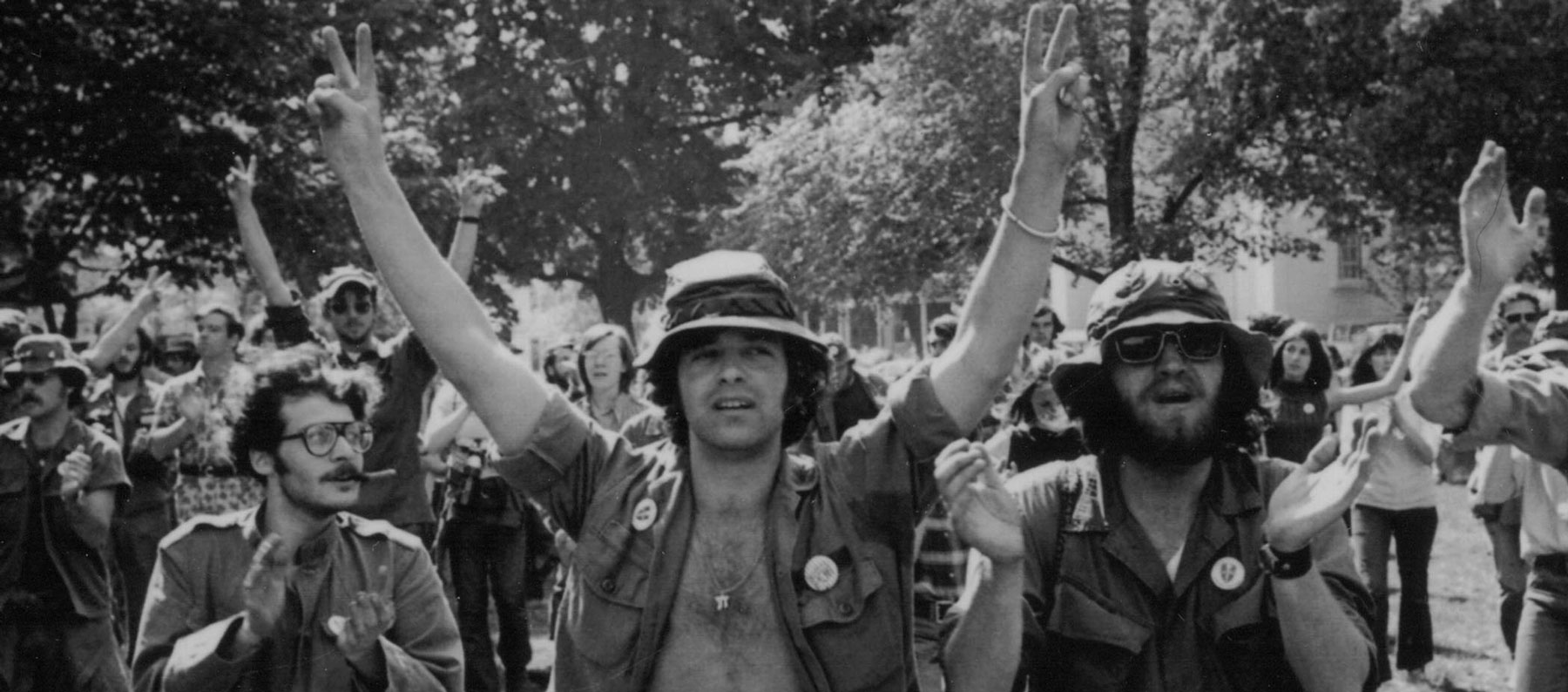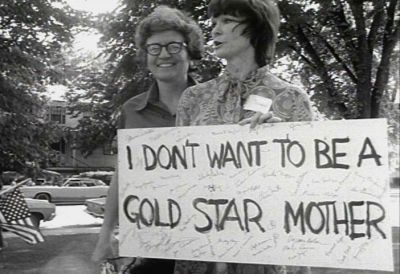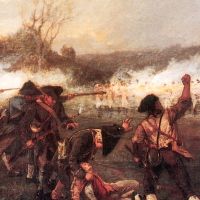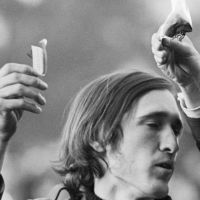Primary Source
From interview with Tom Curran, photographer for the Lexington Minuteman, conducted on January 26, 1994
Tom Curran: The next morning [May 30, 1971], I came down and took some photographs of them marching down the streets and it was just veterans dressed in battle fatigues…. At that time I found out they were planning to stay on the Green. I had known from events before that week that it was not going to be allowed….
As I remember, they did stop at the Battle Green, and stayed all day. Residents came out and talked with them, and it was very open and very friendly – a bunch of people getting together….
INT: What kind of people came?
TC: … It seemed like a very large cross section that went down there. Some people stopped. Then there were other people who came down and argued strongly with what the veterans were doing….
[T]he Selectmen had offered the VVAW [Vietnam Veterans Against the War] other places to stay. But they wanted the Battle Green. Looking on it from their standpoint and my background in communications, the VVAW had a fantastic news peg. If they got to stay on the Battle Green, they got media attention. If they had gone to the playground on Lincoln Street, they'd be just a bunch of guys walking through town. Maybe a picture in the Minuteman. Nothing in the Boston Globe. Nothing anyplace. I think they saw an opportunity to stay on the Battle Green and they capitalized on it. They were promoting their cause. That's looking at it from their standpoint….
INT: Why was the issue so divisive?
TC: I think the war was divisive. There were demonstrations going on. It's the first war that really came into your living room. I mean, you could sit there having supper and see people jumping out of the back of a helicopter…. Kids who were in first grade saw things myself as a veteran, having been in the army for three years, had never seen! You saw this in your home, which was considered a very safe place. There were a lot of people who were killed. There were friends, relatives, neighbors. I think everyone knew somebody who was killed or wounded over there. I think communication had a lot to do with that. It was the first time communication had been used to the extent it had been, and it bought it very close to home, and people were able to form opinions based on what they saw.







